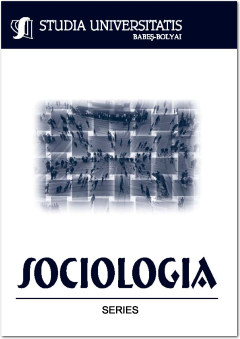THE CREATIVITY TURN IN EUROPEAN CULTURAL POLICIES. STRUCTURAL CHANGES IN THE SECTOR
THE CREATIVITY TURN IN EUROPEAN CULTURAL POLICIES. STRUCTURAL CHANGES IN THE SECTOR
Author(s): Miki BranișteSubject(s): Social development, Sociology of Culture, Sociology of the arts, business, education, Identity of Collectives
Published by: Studia Universitatis Babes-Bolyai
Keywords: culture; non-profit; cultural industries; entrepreneurship; EU cultural policies;
Summary/Abstract: This paper aims to analyse the conditions that enable a double political-economic instrumentation of culture through European Union programmes, and their consequences for the cultural sector. The first European programmes focused on the symbolic value of culture which was perceived as an essential element for strengthening the European identity, and thus as a crucial tool in the project of building the European identity, which is part of a political integration programme. In the context of the development of the creative economy, which overlapped the 2008 economic crisis and a growing influence of the market ideology, a few years later, the European Union launched the Creative Europe programme, thus setting up a new development framework for the cultural sector. For culture, the economic and political arguments in the Creative Europe programme outline a future inherently connected to its contribution to these fields, leaving behind the symbolic and social value of culture characterised by non-lucrative purposes. The programme lays out a direction in which culture is monetized as competitive advantage and bets on the contribution of the cultural and creative industries to become a competitor on the global creative economy. The new framework offered by Creative Europe transforms the approach to culture, placing it in a landscape of global competition, in the company of creative industries, favouring the integration of culture by the latter, not the other way around, thus entailing structural changes in the cultural sector.
Journal: Studia Universitatis Babes-Bolyai - Sociologia
- Issue Year: 66/2021
- Issue No: 1
- Page Range: 51-73
- Page Count: 23
- Language: English

